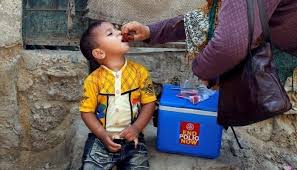Islamabad, Dec 30: Health authorities have confirmed the detection of Wild Poliovirus Type 1 (WPV1) in sewage samples from 26 districts across Pakistan, signaling ongoing challenges in the effort to eradicate the disease. The findings were reported by the Regional Reference Laboratory for Polio Eradication at the National Institute of Health (NIH), which revealed traces of the virus in various locations, including Hyderabad, Jacobabad, Jamshoro, and Kambar.
In Karachi, the virus was detected in multiple districts, including Central, East, Keamari, Korangi, Malir, and South. Other areas where the poliovirus was found include Mirpur Khas, Shaheed Benazirabad, Sujawal, Sukkur, Chaman, Loralai, Pishin, Quetta, Zhob, Islamabad, Bajour, Peshawar, Dera Ghazi Khan, Lahore, Multan, and Rawalpindi.
The detection of the virus in these environmental samples highlights the persistent risk of poliovirus transmission in these regions. To combat the spread, a sub-national polio vaccination campaign was conducted across Punjab, Sindh, Khyber Pakhtunkhwa, Azad Jammu Kashmir, Gilgit-Baltistan, and Islamabad last week. The campaign successfully vaccinated over 42 million children.
As part of ongoing efforts to control the virus, the second phase of the vaccination campaign will begin on December 30 in Balochistan, with the aim of immunizing more children and curbing the spread of the virus.









